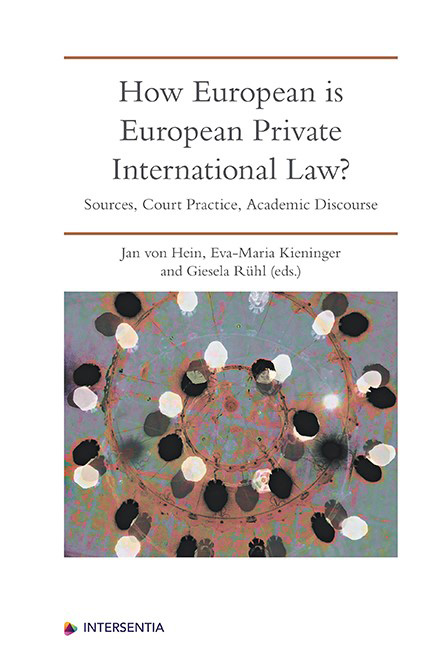The Application of European Private International Law and the Ascertainment of Foreign Law
Published online by Cambridge University Press: 22 December 2020
Summary
INTRODUCTION
This chapter will examine the ‘Europeanness’ of the application of European Private International Law and the ascertainment of foreign law. First, it will look for whatever European traces exist in the field, which may be found in instructions originating at the EU level (a top-down approach), or a spontaneous reaction by the Member States’ courts as a response to the European character of the conflict of laws rule or the fact that the designated law is one of a Member State (a bottom-up approach).
Next, scholarly opinion on the issue will be summarised, in particular regarding the question whether EU legislation is needed to ensure uniform application of both EU Private International Law and foreign law. The chapter will end with an assessment.
THE TOP-DOWN APPROACH: THE EU LEGISLATOR
In order to present the state of affairs and highlight the evolution of EU law, a separation into two time periods may prove useful: before 2009–2011, and after. The choice of the, admittedly to some extent artificial, separation is dictated by several facts besides the logical need of some structure for the purposes of the presentation. The starting point, 2009, corresponds to the entering into force of the Lisbon Treaty (1 December 2009), and to the date of application of the first Private International Law Regulations, namely Regulation 864/2007 on the law applicable to non-contractual obligations (Rome II), applicable from 11 January 2009; and Regulation 593/2008 on the law applicable to contractual obligations (Rome I), applicable from 17 December 2009. In 2009, Council Decision of 28 May 2001 creating the European Judicial Network was amended to insert new provisions opening the network to other legal professionals, and to expand obligations to inform about national law: see section 2.2.2. Two extensive studies funded by the European Commission on the topic were published in 2011: ‘The Application of Foreign Law in Civil Matters in the EU Member States and its Perspectives for the Future’’, by the Swiss Institute for Comparative Law; and ‘The Application of Foreign Law by Judicial and Non-Judicial Authorities in Europe’ by Esplugues, Iglesias and Palao.
- Type
- Chapter
- Information
- How European is European Private International LawSources, Court Practice, Academic Discourse, pp. 139 - 176Publisher: IntersentiaPrint publication year: 2019

